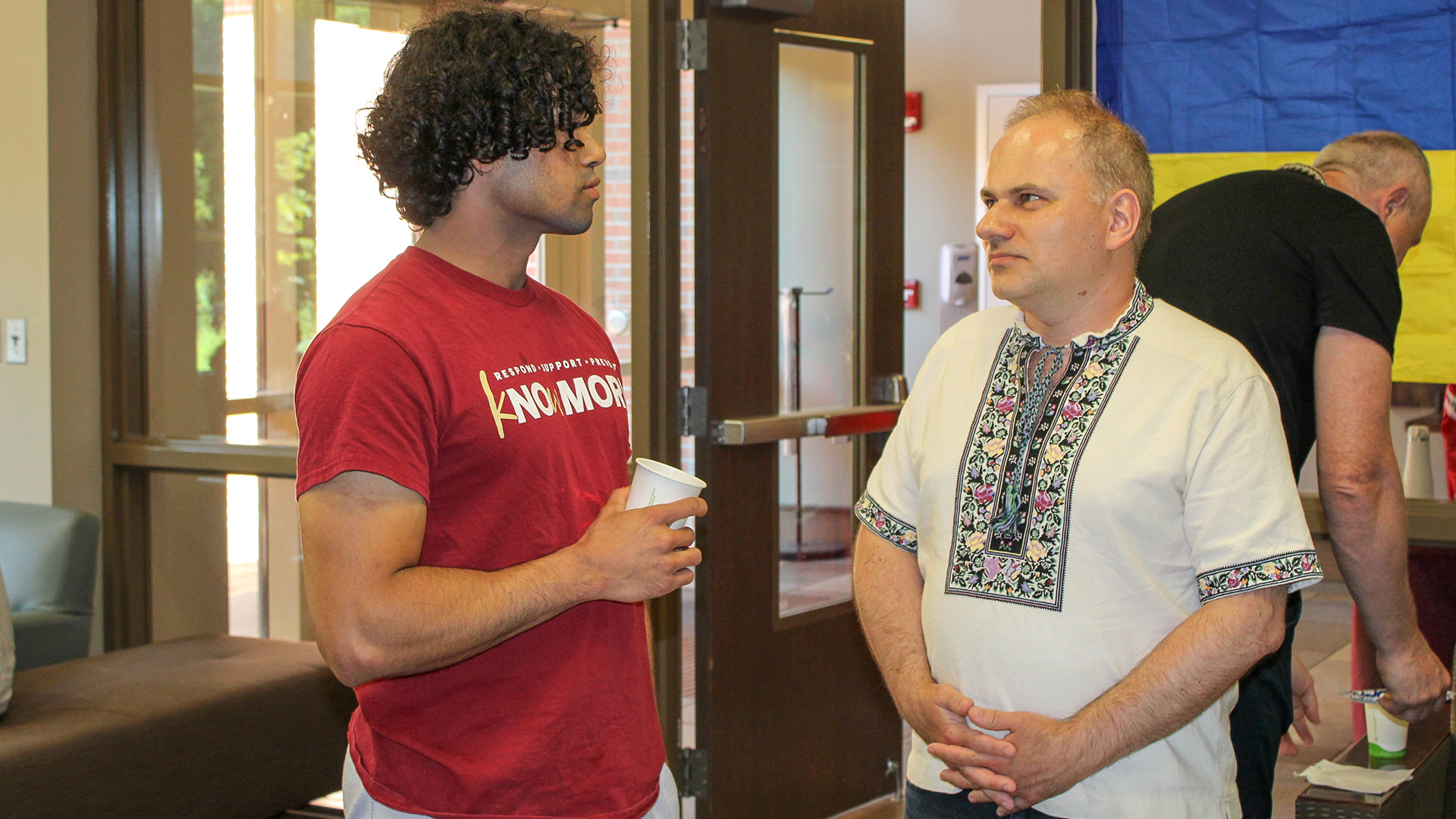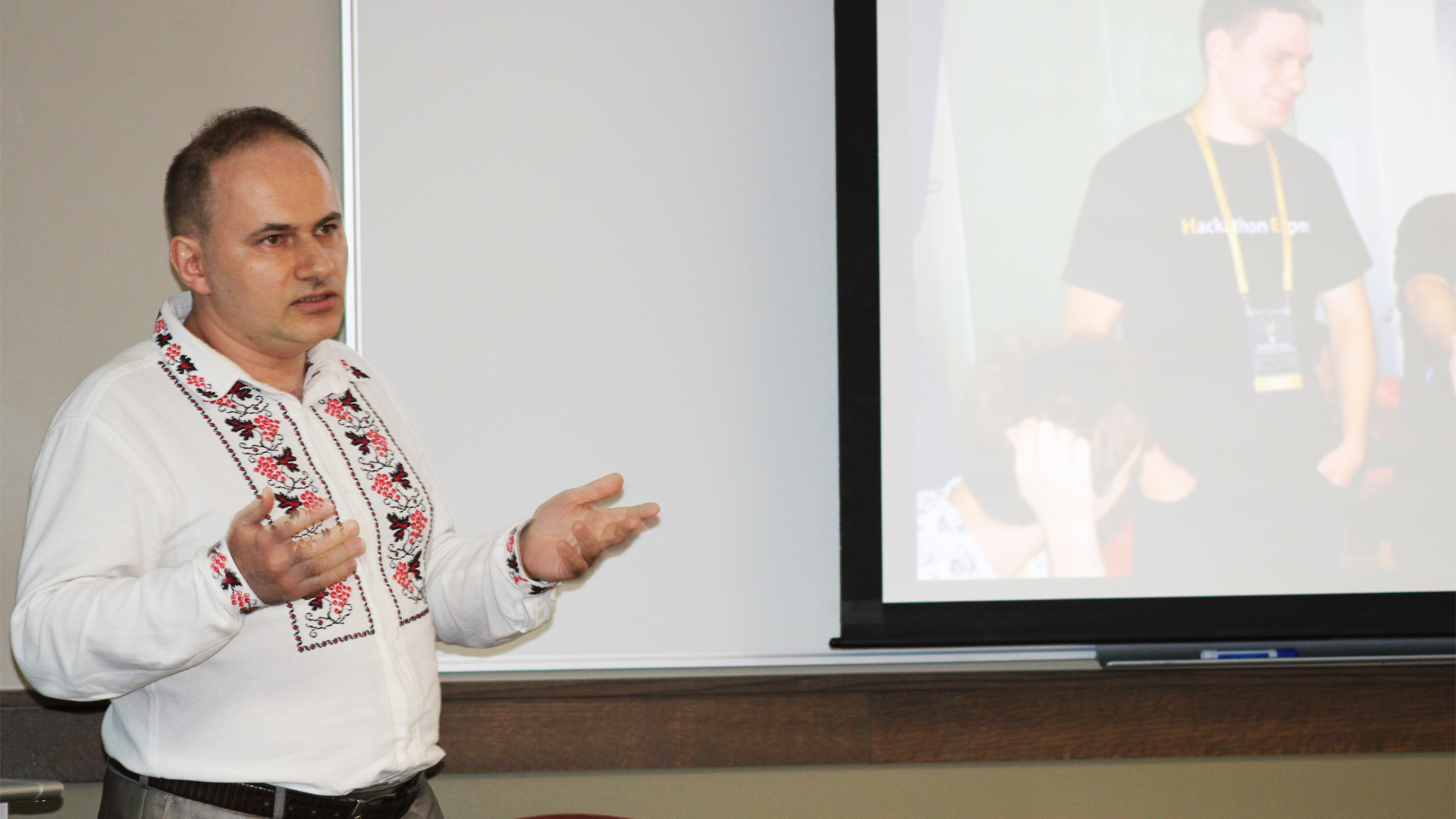BridgeUSA Ukrainian Fellow Spotlight: Dr. Taras Panchenko

By Larissa Martins, LSI Communications Assistant
From earning his Ph.D. at Taras Shevchenko National University in Kyiv to leading the very department where he once studied, Taras Panchenko’s journey as a computer scientist has come full circle—and yet, he has much further to go. Driven by ambitions for his academic field, university, and country, he was thrilled to be one of four Ukrainian scholars chosen for the BridgeUSA Ukrainian Academic Fellow Program hosted at Florida State University (FSU) this summer.
“FSU professors, FSU academicians are just brilliant,” stated Dr. Panchenko. “Everyone we met was a strong professional with deep knowledge. All were with open hearts, and it was obvious they truly like to help and answer all our questions.”
Dr. Panchenko described how coming to an esteemed American university like FSU has simply been a dream come true. He had always intended to study in the United States through an exchange program but had never taken the leap due to juggling multiple leadership roles.
“When the full Russian invasion happened in 2022, I clearly understood that life is short and life is unpredictable, so we can’t postpone our dreams for the far future —let’s do it now,” Dr. Panchenko said.
Dr. Panchenko emphasized that inspiring instructors nurtured his passion for computer science, and he is grateful to play a similar role in the lives of his students. He recalled instantly falling in love with computers when he first accessed one as a teenager in an Informatics class.
“Of course, I couldn’t predict how it would evolve,” he said, “but it was like no other subject could compare to this wonderful thing you can create anything you want on.”
Throughout his professional career, Dr. Panchenko discovered a deep passion for organizing hackathons. These events typically span a week or a weekend and challenge student teams with complex, unsolved tasks that require efficient collaboration, time and project management, and presentation skills. Participants work with experts, tackle demanding tasks that push their creative and innovative boundaries, and often launch start-ups.
“Participants say in their feedback that they are extremely glad they were able to learn so many new methods, ideas, approaches, and applications in real life,” Dr. Panchenko said. “But of course, it's challenging because, in such a short period, you are expected to bring in the minimal viable product which at least partially solves the task.”
Dr. Panchenko has been leading a non-governmental organization that develops hackathons in Ukraine. He also heads the ACM (Association for Computing Machinery) working group, Europe’s largest community of computer scientists, educators, and practitioners. His work with ACM focuses on organizing hackathons in Europe to foster skills development among young students, with a particular emphasis on supporting women in computing since it is a traditionally male-dominated field.

During his fellowship, Dr. Panchenko discussed potential collaborations with FSU faculty to foster intercultural communication among students and prepare them for the global computer science workforce.
“We had meetings with many professors from FSU, and most of them are very thrilled about future collaborations,” said Dr. Panchenko. “We spoke about developing hackathons with mixed groups of students from Ukraine and the United States to challenge them and give them this international experience of collaboration.”
Additionally, Dr. Panchenko was impressed by the different university centers at FSU dedicated to meeting student needs, such as the Career Center, Health and Wellness Center, and Center for Global Engagement. He was also inspired by the flexibility in the American college model that allows students to change academic paths without losing significant time by restarting their studies. He contrasted this with the rigidity of Ukraine’s system and expressed his hope to one day enact changes that would allow students to change majors during their studies.
When asked how he plans to implement these changes, Dr. Panchenko answered, “Step by Step. First, we will try to implement little steps in our department’s faculties. If the procedures work, it would be a good ground to implement these changes in the wider education system in Ukraine.”
Dr. Panchenko spent four weeks engaging with FSU mentors, attending workshops, exploring campus facilities, and participating in various academic activities. These enriching experiences expanded his expertise, research interests, and professional goals. He is eager to put into practice all the knowledge and experience he acquired at FSU and remains committed to driving positive innovations in his community as a leader in computer science.
